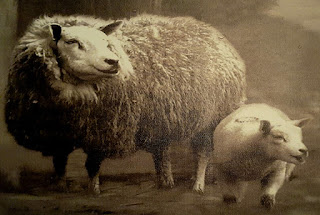Friday after Ash Wednesday
✠ | CLICK TO VIEW TODAY'S READINGS
“This...is the fasting that I wish: releasing those bound unjustly, untying the thongs of the yoke; Setting free the oppressed, breaking every yoke...” (Isaiah 58:6)
If St. Francis were alive, what would he say about how we treat life’s diversity? We often pray for the environment and animals, but is that enough? Philosopher Jacques Derrida coined the word animôt to suggest how humans view animals merely as a word (môt) and not as sapient and sentient beings. Animals exhibit caring, whether for young or others in a group. We humans qualify other species with the prefix “nonhuman,” symbolically positioning ourselves above them in a false hierarchy that contradicts what’s known about biological evolution. In line with James Lovelock’s Gaia hypothesis, the earth is a self-regulating organism, and humans not only share the planet with other species but depend on them. Worms till the soil. Beavers create micro-habitats for others to thrive. Forest foragers, whether in treetops or on the ground, spread seeds for vegetative growth. Consider the thousands of species, from bacteria and lichen, to insects, mosses, birds and primates who service great trees in tropical and rain forests, the lungs of the world. Abundant biodiversity cleanses the ocean waters, too. Yet we encroach on lands with huge animal farms to raise and slaughter billions of creatures as human food. Inhabitants of factory farms are crushed together and forced to stand in their own waste. Pigs are placed in crates in which they are not able to turn around. Cows are mechanically inseminated in order to produce milk; their baby calves are taken away from them as potential milk producers or as “veal” meat. Is not all of this oppression and yoking bondage and suffering the creator would wish to be broken?
Gregory F. Tague and Fredericka A. Jacks


Comments
Post a Comment